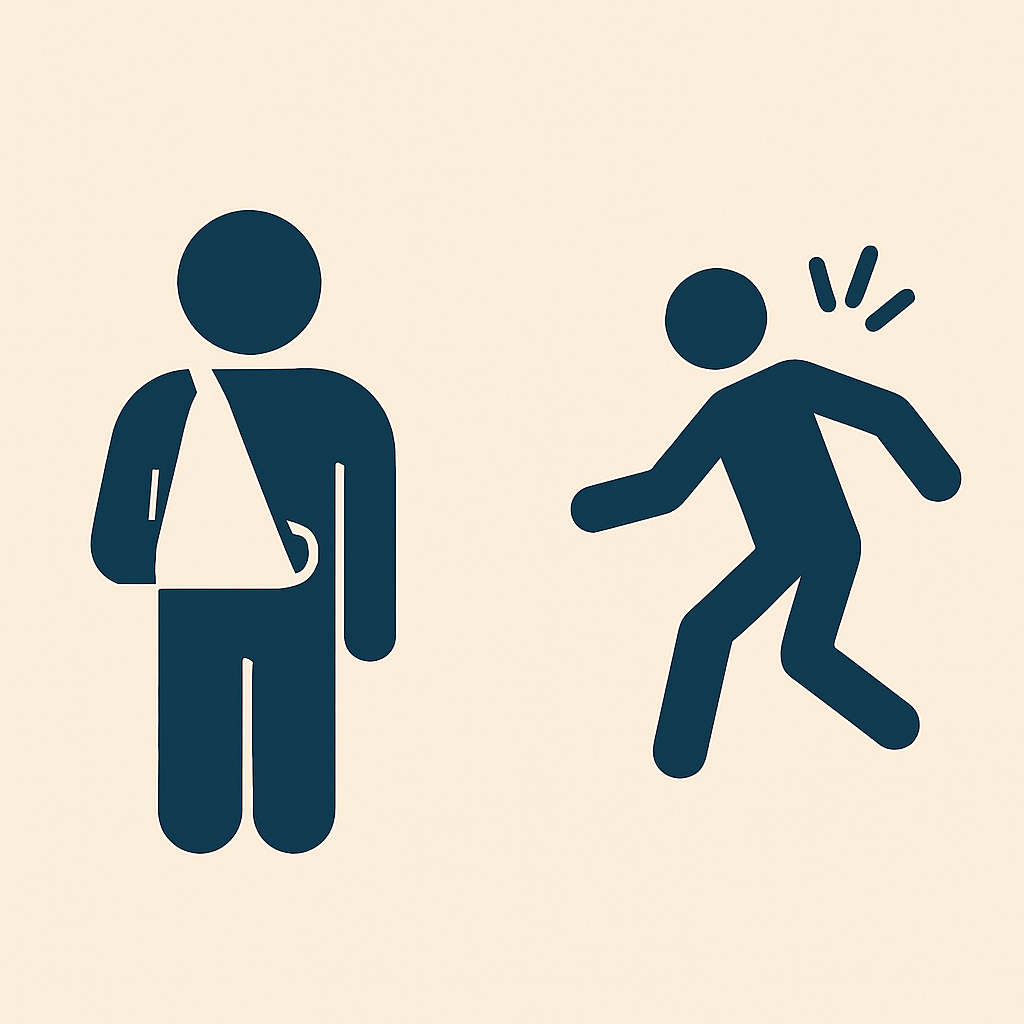
Workers’ Comp vs. Personal Injury Claims: What’s the Difference?
Injured on the job or hurt due to someone else’s negligence? You may be wondering whether to file a workers’ compensation claim or a personal injury lawsuit. Here’s how to tell the difference—and when you might be able to file both.
Key Differences
| Factor | Workers’ Compensation | Personal Injury |
|---|---|---|
| Fault Required | No | Yes |
| Type of Compensation | Medical bills, lost wages, disability | Medical bills, lost wages, pain & suffering, punitive damages |
| Ability to Sue Employer | Not allowed | Not allowed (with rare exceptions) |
| Timeline to File | 45 days to notify employer | 2 years to file lawsuit |
When to File Workers’ Comp
-
You were injured while performing job duties.
-
Fault is not a factor—coverage is automatic once injury is work-related.
When to File a Personal Injury Claim
-
You were injured by a third party, like a negligent driver or equipment manufacturer.
-
You can prove the other party’s negligence caused your injury.
Can You File Both?
Yes. If you're injured at work due to a third party, such as a subcontractor or defective product, you may be eligible for both workers’ comp and a personal injury claim.
Need help deciding which claim is right for you? Duran Law Offices offers free consultations to help injured workers and accident victims in Chicago pursue the compensation they deserve.
